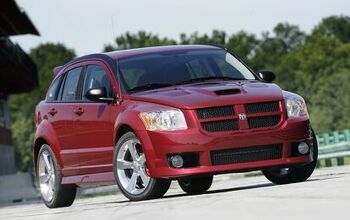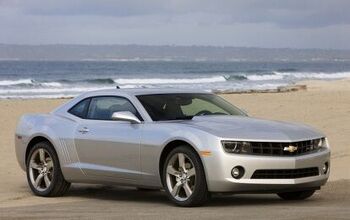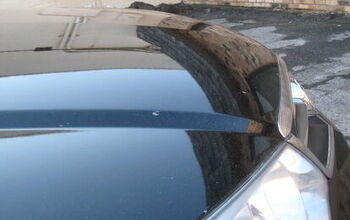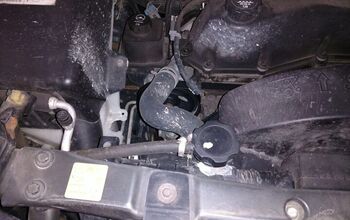Piston Slap: High-Altitude Aspirations?

Kirk writes:
Sajeev,
I asked Bark for advice a few months ago and this question is somewhat related: I’m now planning to get a Miata or maybe the Fiat 124. I live at 5,000 feet above sea level and from what I’ve read, it sounds like the average naturally aspirated engine loses 3 percent of its power for every 1,000 ft increase in elevation, which translates to a 15 percent power loss at 5,000 ft. However, it appears that turbo engines do not suffer as much, as they lose about 1.5 percent power per 1,000 ft on average due to the less dense air. (i.e. more dense with forced induction – SM)
If that is the case, than I expect it would be better for me to get a turbo engine — provided I’m okay with the Fiat.
We may also get an Accord in the next few years, so I wonder if it would be better to buy a six-cylinder NA 2017 next year or wait for the 2018 Accord turbo.
I’m just trying to understand the pros and cons of NA vs turbo engines at elevation.
Thanks for you help!
Sajeev answers:
The benefit of turbocharging is clear, to the point that the Lincoln MKS became almost interesting in this uber- sandbagged comparison test pimpatorial. Which means absolutely nothing to this Houstonian, but do you really care?
You do not, and here’s why: back in 2013, I rented a new, 148-horsepower Hyundai Elantra in Bernalillo, NM ( 5,000-plus ft elevation) and never needed more power. It was remarkably okay, even in the steep hills and twisty backroads north of Santa Fe. I never regretted rejecting the turbo Sonata sales pitch from the guy at the rental counter for just this reason. (Though I admire his brilliant forced induction sales pitch!)
Read between the lines and you’ll note my sinister plan to get you to really quantify the benefit of forced induction in your commute, and your driving preferences.
You pay extra for the privilege, plus there are more parts to wear out, and sometimes more labor to work around it (and its plumbing). So, quantify the benefit: I doubt it matters one iota on your future Accord purchase. After my time with the Elantra in New Mexico, you’re probably fine (i.e. content but not thrilled) with a naturally aspirated four-cylinder Accord!
But I do see the need desire for the extra torque and power (and the elevation benefit) of a Fiat 124 over a Miata. Can’t blame you for that.
[Image: Fiat Chrysler Automobiles]
Send your queries to sajeev@thetruthaboutcars.com. Spare no details and ask for a speedy resolution if you’re in a hurry…but be realistic, and use your make/model specific forums instead of TTAC for more timely advice.

More by Sajeev Mehta
Latest Car Reviews
Read moreLatest Product Reviews
Read moreRecent Comments
- Master Baiter Ditch the Giga-casting and Robo-taxi. I'd rather have a turn signal stalk.
- Pig_Iron If it's not hurting anyone, what's the problem? We have a lot bigger problems to deal with like the failure to prosecute the 5-29 insurrectionists. ✌
- MaintenanceCosts This is already illegal for several reasons. Is this a new redundant law, or is this just an announcement that the police are actually going to be enforcing the law as is?(Also, most lifts at all 4 corners are illegal too, although it's almost never enforced.)
- Jkross22 I get Lexus much more now, especially this era. This seems to be the sweet spot for reserved styling, comfort and reliability. No turbos, integrated screen, hard buttons and knobs, good to great stereos, great seats. Still have some pangs of desire for the GS-F for all of the above reasons and V8 sounds, but this is the smarter choice.
- Canam23 I had a 2014 GS350 that I bought with 30K miles and the certified unlimited four year warranty. After four and a half years I had 150K miles on it and sold it to Carmax when I moved to France a little over two years ago. As you can see I ran up a lot of work miles in that time and the Lexus was always quick, comfortable and solid, no issues at all. It was driving pretty much the same as new when I let it go and, and, this is why it's a Lexus, the interior still looked new. I bought it for 30K and sold it for 16K making it the most economical car I've ever owned. I really miss it, if you have to drive a lot, as I did in my job, it is the perfect car. Some may argue the Camry or Accord would foot that bill, but I say nay nay, you really want the comfort and rear wheel drive of the Lexus. Keep it forever Corey, you won't regret it.


































Comments
Join the conversation
I took my LS460 to high altitude for the first time last summer, reaching a maximum of 8,000 feet in the Rockies. The V8, normally effortless at any non-felony speed, definitely had to work a bit harder, with more downshifts and more time in lower gears. Nearing the top of the passes, it felt like the 367 lb-ft in the midrange had become closer to 300 lb-ft, like I'd expect to experience in a big sedan with a stout V6. I expect a turbo-six 740i would have easily run away in a drag race up there.
Take the Miata, add an LS motor to it. Problem solved. :D https://www.flyinmiata.com/